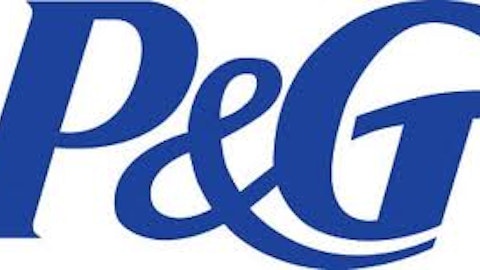At first glance, The Western Union Company (NYSE:WU) would seem to be in trouble. The company’s large number of locations and thousands of employees perform a valuable service- consumer-to-consumer money transfers- but just as with bookstores, Internet-based options are beginning to creep into the space. eBay (NASDAQ:EBAY)’s PayPal offers a similar service, and banks themselves are recognizing the potential of e-payments (for example, JPMorgan Chase (NYSE:JPM)’s Chase Bank now offers the service to its banking customers). Perhaps recognizing the intensity of competition, the stock is down 5% so far in 2012.
It may come as a surprise, then, that in the second quarter of the year The Western Union Company reported revenue growth of 4% and net income growth of 3% compared to the same period in 2011. For the first half of the year the company reported even better numbers, including a 10% increase in earnings. With a substantial cut in share count compared to a year ago, EPS for the first half of 2012 stood at 84 cents compared to 74 cents at the same point in 2011. The consumer-to-consumer business has been stagnant in terms of revenue and operating income, with the Business Solutions segment driving growth, but even if the company can tread water and continue to repurchase shares with its cash it should be able to generate EPS growth.
Given that Western Union trades at only 9 times trailing earnings and pays a dividend yield of 2.3%, any EPS growth at all would make the stock a good value. Wall Street analysts expect essentially flat earnings performance for 2013, as The Western Union Company also trades at nine times forward estimates. Over a longer time frame, the five-year PEG ratio dips to 0.9, meaning that the sell-side considers the stock a good value even given fairly flat growth next year. And with a market capitalization of over $10 billion and enough cash flow to pay its dividend and execute significant buybacks, we are not worried about Western Union’s stability either.
Billionaire Leon Cooperman was bullish on the stock in the second quarter of 2012, nearly tripling Omega Advisors’ position to 4.3 million shares (find more stock picks from Leon Cooperman). Western Union also continued to be a favorite of Chieftain Capital, managed by John Shapiro: the fund only reported 10 positions in its 13F filing for the second quarter, including 8.4 million shares of the money transfer company. Chieftain had more than doubled its stake in Western Union in the fourth quarter of 2011 (see other stocks in Chieftain’s portfolio). Bernard Horn’s Polaris Capital Management initiated a position of 2.1 million shares between April and June of 2012, making it another large hedge fund holder of the stock.
We’ve already mentioned PayPal parent eBay as a peer, and think that American Express (NYSE:AXP) and smaller consumer-to-consumer payments company Moneygram International (NYSE:MGI) are comparable companies as well. The latter two companies both trade at 12 times forward earnings estimates, while eBay’s forward P/E is 17. Moneygram in particular seems overvalued compared to Western Union: it hasn’t paid a dividend in years and its multiple is based on an expected 32% pop in EPS in 2013 compared to 2012. We are skeptical on that point. eBay and American Express are good picks, though they obviously have exposure to other business units. In the case of eBay, we would certainly give PayPal a higher earnings multiple than Western Union as a stand-alone business unit but the e-commerce focus would need to pass muster enough to buy a stock whose forward P/E is about twice as high. American Express looks a lot like Western Union in terms of low recent growth and low estimated growth for next year. It is a larger company with a strong brand, and we wouldn’t be short either company as a matter of fact, but we’d prefer the lower valuation multiples and good record of returning cash to shareholders that we see in Western Union.





